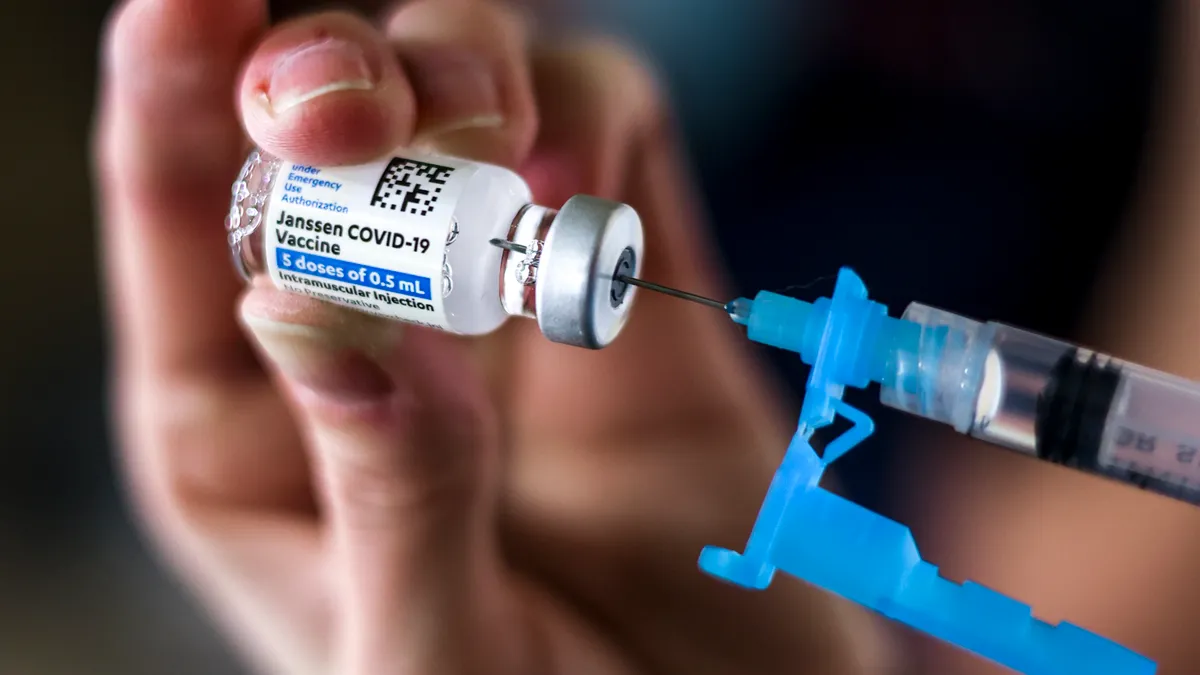Healthcare giant Johnson & Johnson CFO Joseph Wolk said the pandemic taught him the value of acting quickly and helped the company pull off the recent $40 billion split-off of its consumer-health business in just 17 months.
Recalling the start of the pandemic shut-down when he left his office on March 13, 2020 with a pending April 1 first quarter close looming, he said he would have balked if someone had told him that he was going to have to close his books that quarter while his whole team worked remotely. “I would have said, ‘I’m not signing up for that,’” Wolk recalled. “But we got it done.”
Likewise, M&A experts said the company got its blockbuster split-off done “pretty fast,” Wolk told Simon Johnson, an author and professor of entrepreneurship at MIT Sloan, on Tuesday during a “fire-side chat” at the MIT Sloan CFO Summit Tuesday in suburban Boston, Massachusetts. “That’s something that I took away from the pandemic: moving with speed and agility, you may not get it exactly right but you’re going to be much better off.”
The New Brunswick, New Jersey-based company split off its consumer-health business — owner of such iconic brands as Tylenol, Band-Aids and Benadryl — into a separate Skillman, New Jersey-based company called Kenvue. The transaction was finalized in August, according to press releases from both companies.
It also put J&J in the camp of a number of other big drugmakers divesting themselves of lower-margin but profitable consumer units to focus on making new medicines, and comes as J&J faces at least 18 jury trials over the next year related to claims of tainted talc in its baby powder, according to Bloomberg News reports.
During his talk before a packed conference hall, Wolk touched on the run-up to the deal, the role of tech in the finance space, and his outlook on the talc litigation.
On the deal’s underpinnings, he said it didn’t start out approaching it from a financial standpoint. The decision to move forward came out of the very different businesses that consumer products and pharmaceuticals have evolved into.
“Consumer products are now very much influenced by celebrity endorsements,” Wolk said. “So if Kim Kardashian says, ‘hey this face cream worked for me,’... they’re going to go and buy that.”
In contrast, medtech and pharmaceuticals are much more data oriented. “You need to prove to the healthcare providers that it actually works,” he said, noting the vast differences are also evident in the returns where pharmaceuticals’ are in the mid-teens while consumer products can can yield an 8% return on capital, which is less risk. “So, from a strategic view, it just made sense.”
In terms of use cases for technology such as AI in finance, Wolk said he sees it helping with compliance, data integrity and noted that he expects it should free up time for people in the finance functions to focus more on using the data to make better and hopefully more predictive decisions.
He also said J&J is also currently busier than some people might expect in terms of its tech focus. For example, he says the company employs about 3,000 data scientists and has about 1,000 different people writing code for use in new medical devices such as those that can help with things such as robotic assisted surgery as well as business applications.
“We should know when a medical device leaves a supply room from a hospital or when a drug or biologic leaves the pharmacy that needs to be replaced,” Wolk said. “Those are some of the great great benefits.”
Asked about his outlook and any role he has in the talc baby powder litigation, Wolk said the company is continuing to defend itself in the cases, asserting that there was a “small legal team that’s focused on that” and maintaining that it is not distracting the company from its core business.














